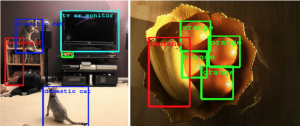Related Articles
We live in the information age. Bloomberg have stated that around 90% of the data we have today has been generated in the last two years. For example, companies such as Facebook can monitor your every move, where you are, what you’re looking at, and who you are talking to.
With all of that data, and the massive increases in computing power and availability, companies and individuals like myself are able to predict things like never before.
How do they do it?
A large amount of approaches at the moment are focused around Artificial Intelligence (AI). AI is similar to how the human brain operates. If you show a three year old 1,000 pictures of fish, then they could identify a fish in a picture they haven’t seen before. That’s pretty much how image recognition works in simple terms, and it’s how Google and Apple can put all of the photos on your phone into categories.
Uses
These kind of approaches have huge use cases. There is a lot of media attention on self-driven cars at the moment, with key players like Google, Tesla and Uber trying to break the market. This has huge implications – I think it’s very possible that when you call an Uber in 2030, a driver-less taxi arrives.
Another example I’ve read about is a security firm selling cameras that are able to identify shoplifters on a real-time video feed. Imagine the implications of that – all of those overnight security staff that could be expendable. You can take this a step further too – it’s not a very large step to real-time automated crime monitoring, using CCTV cameras spotted around your local town.
My favourite example of the uses of this technology is that medical practitioners can now use AI for cancer screenings. You can show an image recognition algorithm an X-Ray image of a person’s chest, and it could return a likelihood that a tumour is present. This technology will literally save lives.
What does this mean for the future?
More data means more automation. A friend of mine at PwC worked on a report which states that up to 30% of existing jobs could be impacted by automation. You can read the press release here: clickme. There are huge social impacts to jobs automation, and AI has come under scrutiny in the media, with many people calling for regulation. The Guardian wrote an interesting article earlier this year, suggesting that Universal Basic Income could be a potential solution to the jobs lost through automation. You can read the full article here: clickme.
There is a lot of scaremongering in this space. Elon Musk, founder of Tesla and SpaceX is of the opinion that AI could lead to a third world war and potentially to an apocalyptic event. Mark Zuckerberg, founder of Facebook, has a very differing, less dystopian opinion. There is a huge difference between AI and AGI (Artificial General Intelligence), the latter referring to a machine capable of experiencing consciousness.
While AI will have huge impacts all across society, I think we are miles away from emotionless killer robots roaming the streets. The world is a very complex place, with millions of variables.
Thanks for reading.

